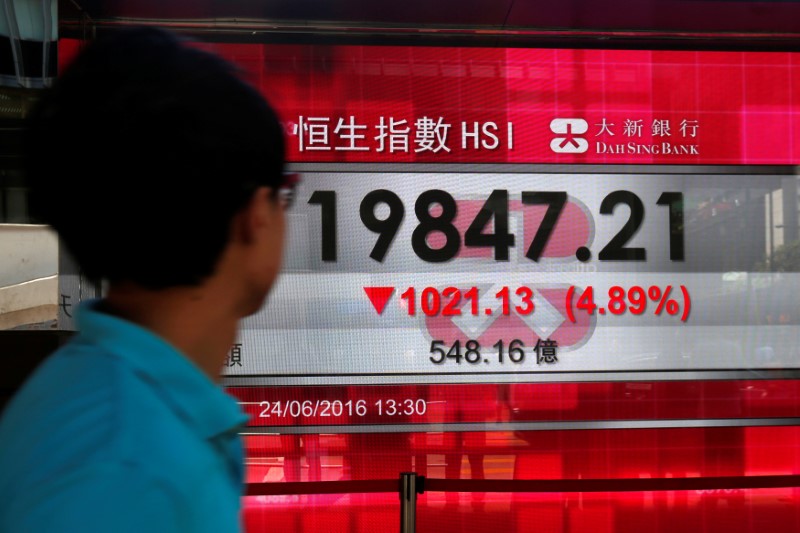This post was originally published on this site

Investing.com– Most Asian stocks fell sharply on Wednesday, with technology-heavy bourses losing the most after Federal Reserve Chair Jerome Powell warned that interest rates could go higher than expected.
Worsening sentiment towards China also weighed on regional stocks, as mixed trade data from the country and a warning on a potential escalation in Sino-U.S. tensions from China’s foreign minister soured risk appetite.
China’s Shanghai Shenzhen CSI 300 and Shanghai Composite indexes fell 0.7% and 0.5%, respectively, after logging steep losses in the prior session. While the country posted a record trade surplus in the January-February period, a sharp drop in imports raised concerns over a sluggish recovery in local demand.
Among technology-heavy bourses, Hong Kong’s Hang Seng index slumped 2.7% and was the worst performer for the day, while South Korea’s KOSPI and the Taiwan Weighted index lost 1.4% and 0.6%, respectively.
Asian markets were dealt a weak lead-in from Wall Street, which tumbled on Tuesday following Powell’s remarks.
Powell said in a testimony to Congress that recent strength in inflation and the jobs market was likely to see rates rise above market expectations, and also raised the prospect of a sharper hike in March.
His comments saw a majority of traders now pricing in a 50 basis point hike in March, up from prior expectations for 25 bps raise.
Treasury yields also spiked in overnight trade, further pressuring stock markets. The prospect of rising interest rates bodes poorly for Asian stocks, given that bonds offer steadier returns in such an environment at relatively less risk. This trend battered regional markets through 2022.
Focus this week is on more signals on the U.S. economy, with the Fed’s Beige Book due later on Wednesday and a reading on nonfarm payrolls due on Friday.
Risk-heavy Southeast Asian markets also logged sharp losses, with Philippine’s PSEi Composite and Thailand’s SET indexes losing 1.2% and 0.9%, respectively.
Japan’s Nikkei 225 bucked the trend, rising 0.3% as a rash of weak economic data reinforced bets that the Bank of Japan will leave its ultra-accommodative policy largely unaltered this week.
Japan’s current account deficit widened more than expected in January, while growth in average cash earnings also deteriorated.
India’s Nifty 50 and BSE Sensex 30 indexes fell 0.4% and 0.5%, respectively, in catch up trade, with major technology stocks weighing the most.


